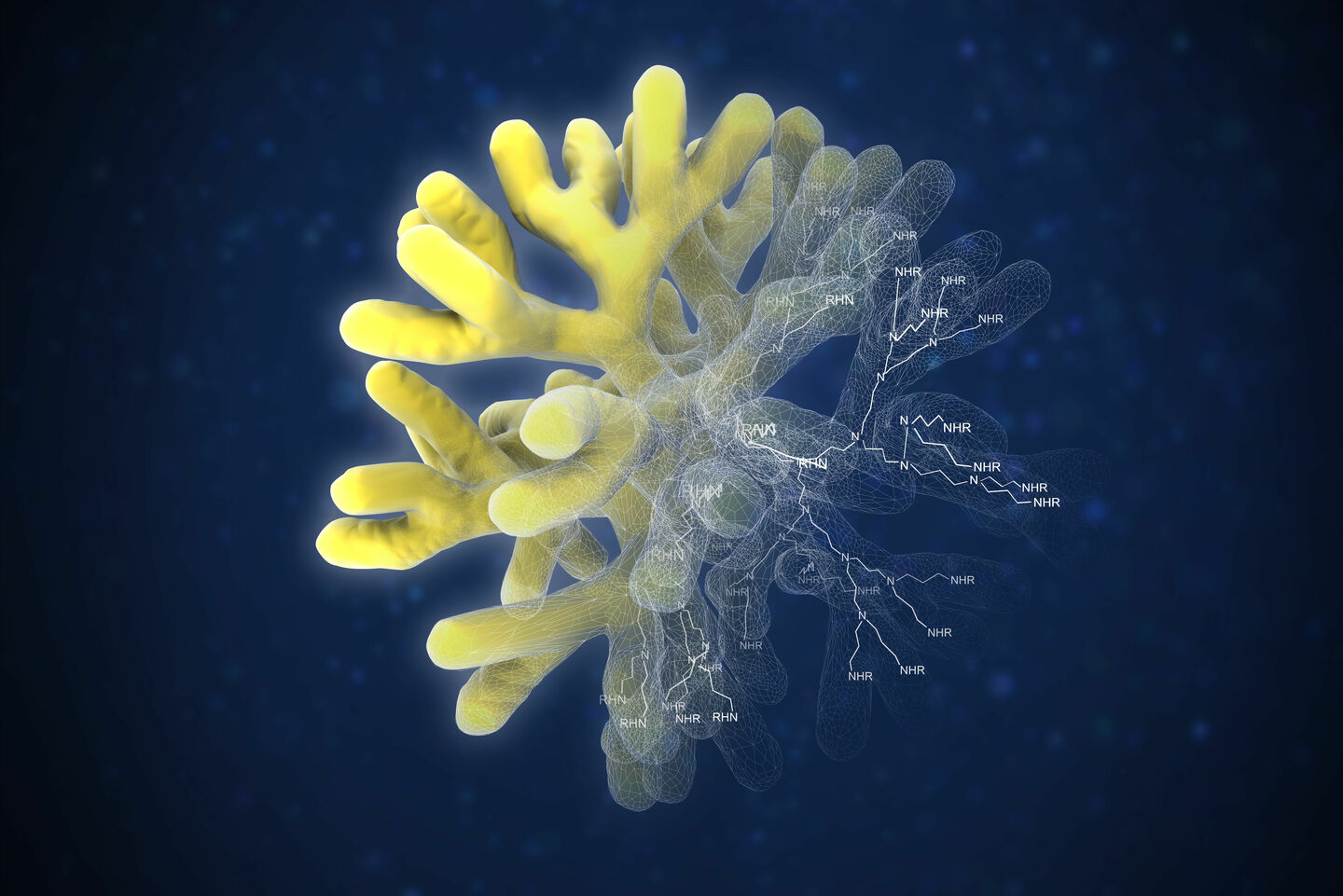
Ten years of research passion and pushing back scientific frontiers
More than ten years ago the Institute for Complex Molecular Systems (ICMS) started its activities in the basement of the Hoofdgebouw. Contents, staff and interdisciplinary work were and still are the main starting points for founder Bert Meijer. Now that the three rooms in the basement of the Hoofdgebouw have been changed for individual accommodation in Ceres, Meijer thinks it is time to transfer the management of a prominent, innovative and highly successful institute - considering the many prizes awarded. Prospective Academic Director Jan van Hest and his ‘former trainer’ look back and look ahead.
In 2008 Meijer (62) together with fellow-professors Mark Peletier, Rutger van Santen and Jaap Schouten initiated the foundation of a new institute. It was intended to focus on bringing together scientists and different disciplines from the five cooperating departments: Mathematics and Computer Science, Biomedical Engineering, Applied Physics, Mechanical Engineering and Chemical Engineering.
For Meijer himself the mechanism of self-organization is central: how can functional molecular systems arise from separate building blocks? This knowledge makes it possible to build molecular factories that produce a new generation of catalysts, nanocontainers and functional materials.
A relatively new research area, which makes it all the more essential to encourage cooperation across departmental boundaries, as Meijer explains. "There is so much to be gained by bringing together people who are very strong in their disciplines. At the same time we attract people who are in-between two traditional disciplines. This interaction allows us to realize things which we would otherwise be unable to accomplish. Besides, from day one we stated first and foremost: the institute will only concern itself with science and technology. We stimulate and facilitate researchers in conducting pioneering research. Money and organizational structure have subordinate roles. This really distinguishes our institute essentially from the other academic interdisciplinary institutes within the Netherlands", Meijer explains.
TU/e is the only Dutch university where the disciplinary departments - chemistry, physics and mathematics - have not been merged as physical sciences. Meijer: "Institutes coming under those have relatively much clout within the university. In America you still often see the classical departments, for example in the University of California in Santa Barbara; the Institute for Complex Molecular Systems (ICMS) has been modeled after their Materials Research Lab. In the absence of a structure that holds all administrative power and responsibility, we have ample space for our scientific research passion."
The approach is successful. Soon after its foundation one after another ICMS article is published in the most authoritative scientific journals. Research areas expand quickly - Meijer thinks that the name has not covered the cargo for a long time - and growing numbers of researchers affiliate themselves with the new institute.
Making science clear
An animation studio is set up as well. Meijer: "When you talk about something complex that is dynamic, it is very difficult to communicate with static pictures. You also need to do that in the language of complex molecular systems. Apart from making science clearer to your fellow-researchers, you are making it more accessible to a larger public. Thus, the first film of the animation studio, which was made at the time for the World Expo 2010 in Shanghai, is still being shown around the world."
In 2012 a big step follows: an individual space in the altered Ketelhuis Ceres in which Sagitta Peters, then business manager of the ICMS, fulfilled an important role, says Meijer. Transparent, space for a large atrium to promote mutual discussions - ‘we never have meetings’ - and a technically optimal environment for state-of-the-art laboratory equipment. “Even our building secured a prize with the BNA Building of the Year”, Meijer winks.
Continuing in earnest then: “The appeal of the institute is enormous, we get a lot of appreciation, visitors are impressed. And the spate of subsidies and prizes we win keeps increasing, which is one of the things that makes me very proud indeed. In the world of chemistry we enjoy an international reputation in our discipline, in the Netherlands we are a household word across all disciplines. This ensures that we can retain top researchers and attract new top talents and highly valued academics and let them work in a high-tech environment.”
“For instance, we are now involved in the setup of a 4D characterization lab for soft materials, which is going to generate a great deal of innovative research. Still, I cannot emphasize it enough: the ICMS itself does not want anything, it’s just four letters. It’s all about the people. We can bring them together, stimulate them, help them do things better, allow new visions to arise. And in this way we jointly push back scientific frontiers.”
Retaining the lead
One of the top researchers who has come to Eindhoven thanks also to the ICMS, is Professor of Bio-organic Chemistry Jan van Hest (49). He started his scientific career as a PhD student in the group led by Bert Meijer, and after appointments at chemistry concern DSM Research and Radboud University Nijmegen, among others, in 2016 he was again employed by TU/e. This spring he will take over the baton as Academic Director of the ICMS from Meijer.
Van Hest: “The ICMS is certainly one of the reasons why I’ve come to TU/e, it’s a fantastic place brimming with scientific interaction. Eindhoven has always played a prominent role within complexity thinking. A number of international groups were already focusing on supramolecular chemistry, but the complexity involved in understanding it better and making the next step in the control over molecules, materials and processes was set in motion as many as ten years ago here. The Complexity Hub, one of today’s three lines of research, is a great success. However, we need to make sure that we keep the lead, because developments in technology are going very fast.”
It can’t hurt if we become a bit more self-confident and realize that we really have something to offer as a partner
In order to enhance the visibility of the ICMS (internationally), Van Hest together with the current business manager has restructured the research lines and shaped them into seven pillars (see infographic below). For researchers, too, it must be clearer in this way what is happening within the institute and in what respects they can make innovative contributions.
Cooperation with the business community is also important for that purpose. That does not need to be detrimental to fundamental science, indeed, it can contribute to it, Meijer stresses. “It isn’t always about applied research. For instance, with our expertise and sophisticated equipment we can conduct measurements on a certain industrially used material and can work towards gaining a new understanding once we gather more knowledge about it.”
Research & ICMS
Within the Institute for Complex Molecular Systems (ICMS) research is conducted into self-assembly: the spontaneous organization of molecular building blocks into a structure. How is it possible that certain molecules begin to stick together and form a structure with a distinct function? Armed with this knowledge, researchers can then build self-organizing molecular factories with very diverse functions, from nanomotors to dynamic biomaterials for tissue repair inside the body.
Research within the ICMS has seven pillars (see infographic below, click to enlarge).
Solving the problems of the future
And that very understanding is of the essence for a university, Meijer underlines. In today’s society a great deal of attention goes to appealing science and technology, such as driverless cars, footballing robots and student teams. “For fundamental research it is much harder to share the results with a large audience. That’s why we are so enthusiastic about the various Gravitation Grants and the ICMS, where many of these programs converge. Collaborations whereby we can lay the fundamental basis for a flourishing university in the future. After all, students must also be trained to be able to solve the problems manifesting themselves in twenty or thirty years from now, not just those that exist today.”
Continuing to renew and stimulate
Interdisciplinary, complex, fundamental. They are ICMS keywords which also stand out for Van Hest as chairman of a study group within the TU/e Expedition 2030. In that project Van Hest analyzes university-wide within which research spearheads TU/e can keep playing or start to play a prominent role in the next decade. "There are exciting developments taking place in grey areas and then it takes knowledge from several domains to make progress. Interdisciplinary work may seem self-evident, but for many it really entails a change of perspective. We see that for a technical university in particular it is crucial not just to stay within the departmental borders, but to reconnoiter the unexplored areas in-between."
"You see this reflected in the research themes of the future: development of new materials, complex systems, biology as engineering science. We contribute to that as ICMS also. How do we look at biological systems with molecular knowledge; very important for making the next step from phenomenological science - watching - to creative, synthetic science, where we can build things so as to study them. Both intrinsically and in its interdisciplinary approach TU/e will be moving in a direction for which we are already doing pioneering work. And we are going to continue along this course in the next decade, continuing to renew and stimulate."
In order to continue this rising curve, Meijer thinks that now - with the celebration of the tenth anniversary as a symbolic reference point - is a fine moment to transfer the Directorship to his former pupil. "At a certain moment you are in danger of steering on the autopilot and fresh eyes are needed. What should be first and foremost is that the work conducted within the institute is top-notch. In that sense top science is similar to top sport. If you really want to achieve anything there, each detail must be optimal and not even the slightest obstacle must be put in your way. As an institute we can offer top researchers that proper climate, when life for us as researchers is already being complicated so much because we need to jump through so many different hoops. No obligations, which is another point of which I am proud that we’ve done it the way we have. You don’t have to join us, you may. No weekly mandatory meetings. If you’re interested, you’ll come anyway and you will be inspired."
"Remember, though, that top sport also requires friendly competition", Meijer concludes. "Let’s keep challenging each other to go the extra mile and guard against resting on our laurels" - Meijer clenches his fist, Van Hest rolls up his sleeves - "Come on, guys!"

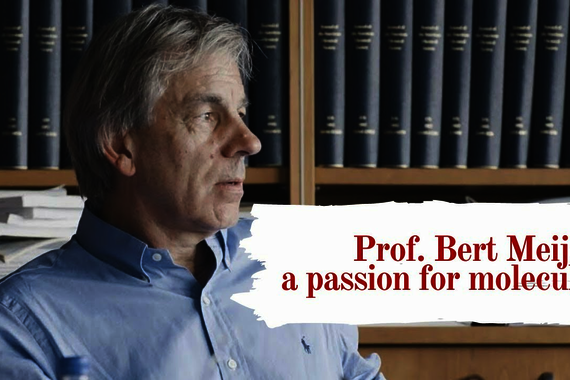
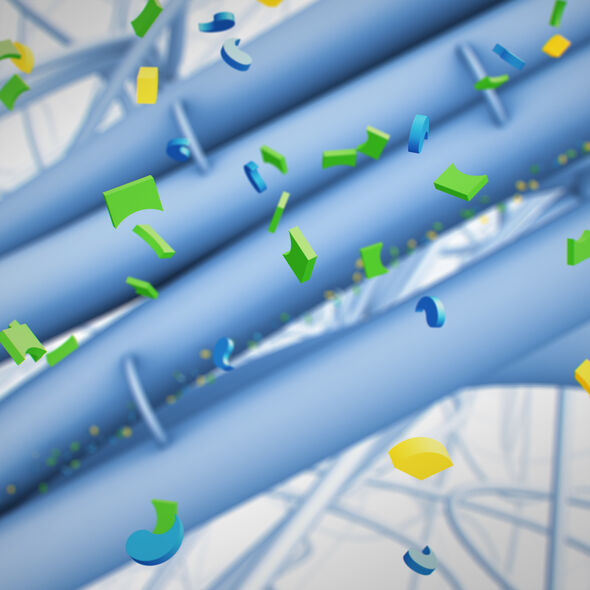
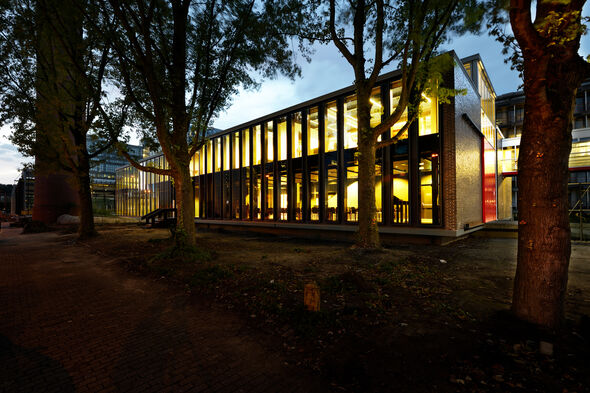
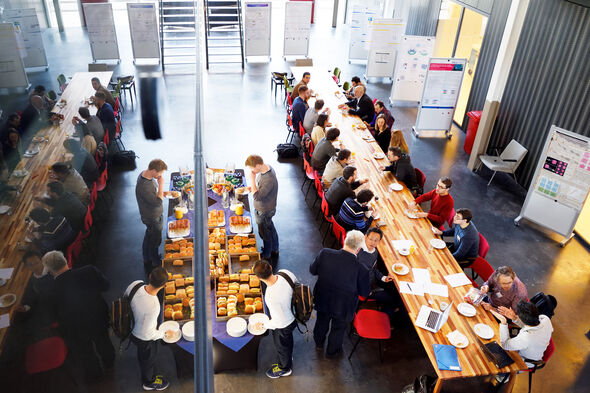
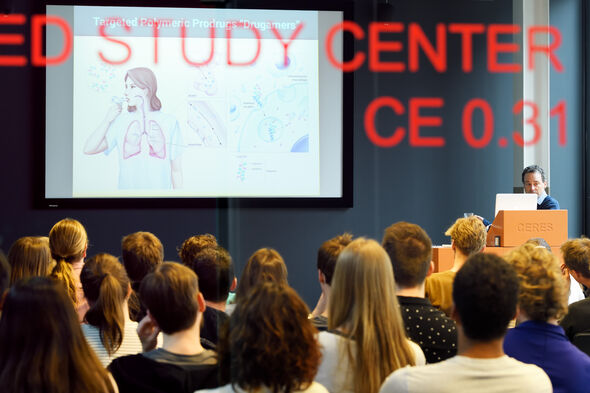
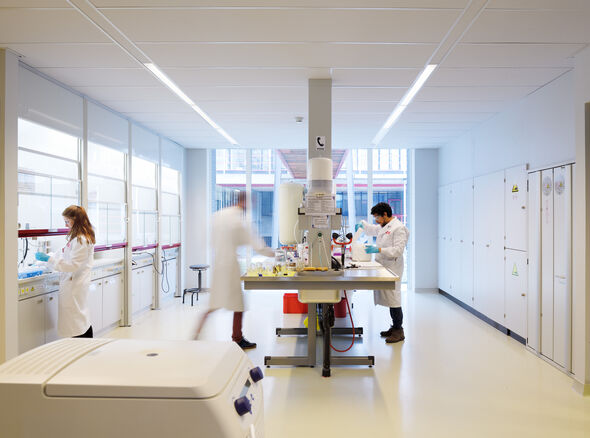
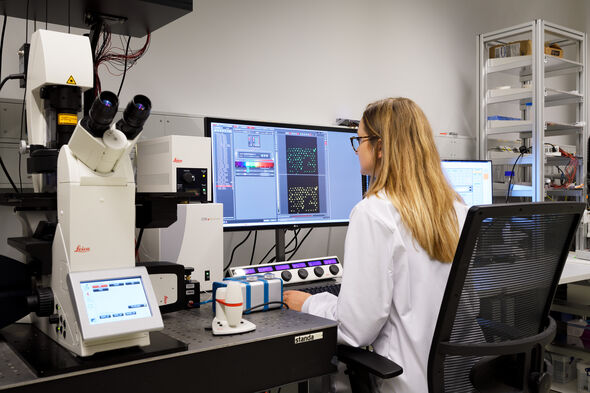
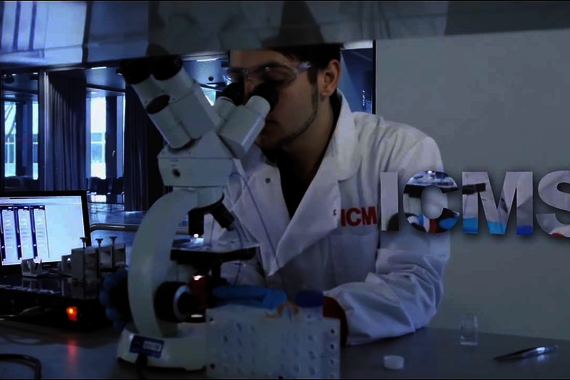
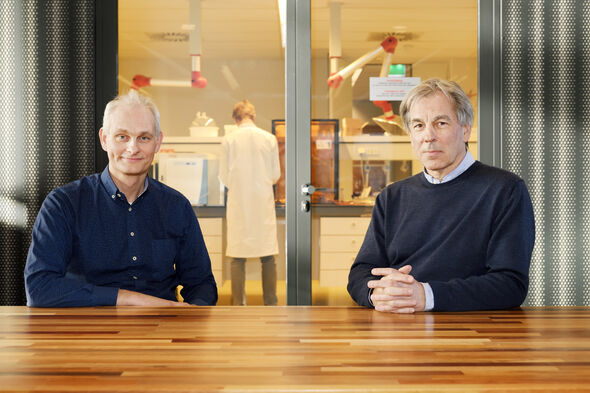
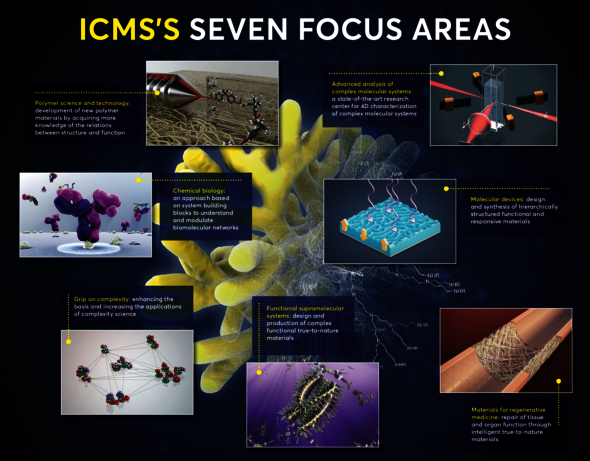
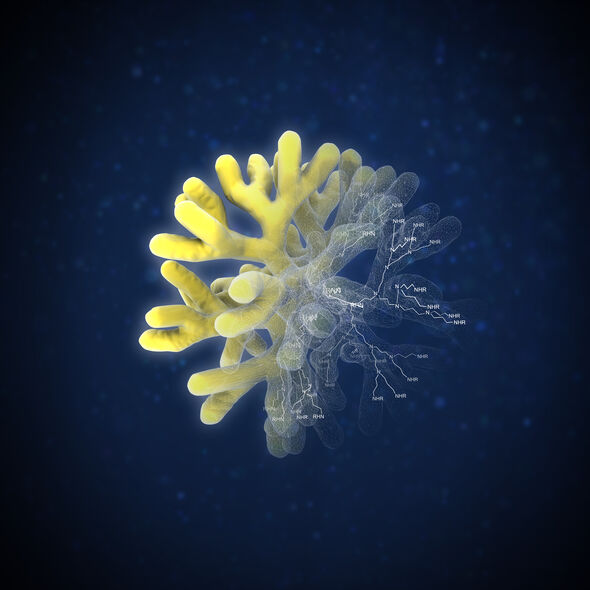
Discussion